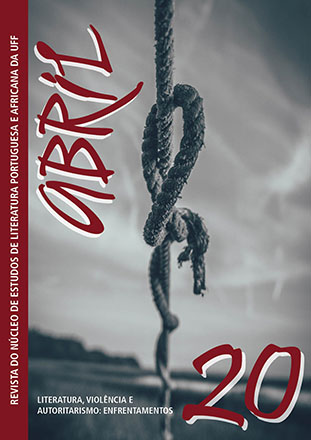From Luanda to Lisboa: 'o retorno', de Dulce Maria Cardoso, and the rest of empire
DOI:
https://doi.org/10.22409/abriluff.v10i20.29957Keywords:
Colonial War, Collective Imaginary, History and Literature.Abstract
According to the analysis of Jacinto do Prado Coelho in Originalidade da literatura portuguesa, the portuguese collective consciousness has been built over time through a series of references from the literature. For a long time, portoguese historiography has used literature as its primary source: myths, memories and travel chronicles have contributed both to the construction of official history by the authorities and to what can be defined as the poetics of the nation – during the long time at the service of the Estado Novo and its propaganda of the imperial ideology. However, from 1974, in conjunction with the end of the salazarist dictatorship and the colonial war, the literature begins to narrate the moment of loss and the end of the long-lasting portuguese colonial tradition. Borrowing the expression of A.P. Ferreira and M.C. Ribeiro, the literature started to interrogate the spectres and fantasies of the empire. Therefore, building on the strong connection between portuguese literature, historiography and collective consciousness, this article presents a critical analysis of the novel O retorno by Dulce Maria Cardoso, which seeks to investigate and analyse the remains of the empire.
---
Downloads
Downloads
Published
How to Cite
Issue
Section
License
I authorize the journal Abril - NEPA/UFF to publish the paper of my authorship/responsibility that I now submit, in case it is accepted for online publication.
Moreover, I declare that this contribution is original, that it was not submitted to any other editor for publication, and I sign the present declaration attesting the truth of all its contents.
The copyright of the works published at the virtual space of the journal Abril - NEPA/UFF are automatically entitled to the journal. Their total or partial reproduction is conditioned to the authors' citations and publication data.

Abril is licensed under a Creative Commons - Attribution-NonCommercial 4.0 International (CC BY-NC 4.0).









